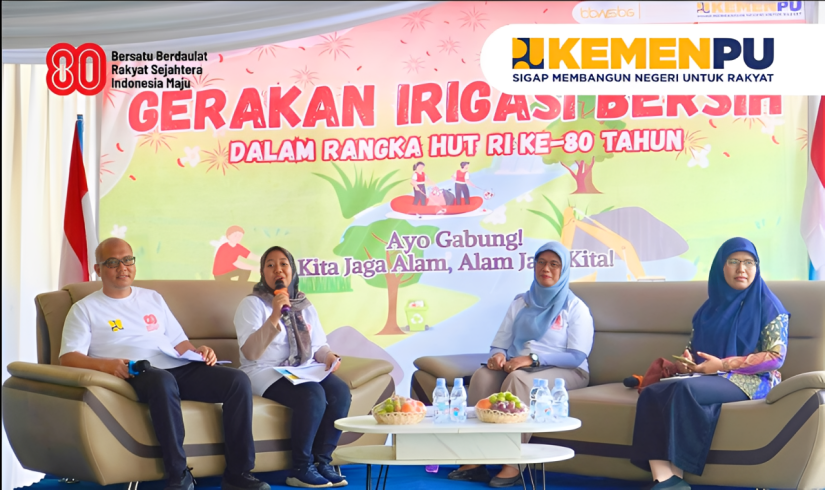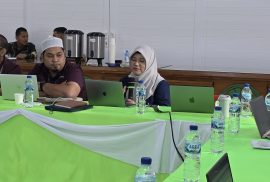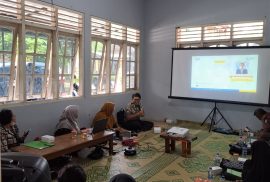
Karanganyar, August 12, 2025 — In commemoration of the 80th Anniversary of the Republic of Indonesia, the Bengawan Solo River Basin Office (BBWS Bengawan Solo) launched the Clean Irrigation Movement as part of the government’s priority program to achieve national food self-sufficiency. The event took place at the Field Office of the Colo Irrigation Management Unit (UPI Colo), Nangsri Village, Kebakkramat District, Karanganyar Regency, Central Java, serving as a key moment to strengthen synergy between the government, academia, and local communities in sustaining the country’s irrigation systems.
One of the main agendas was the Inspirational Dialogue on Clean and Well-Maintained Irrigation, featuring a speaker from the Department of Agricultural and Biosystems Engineering (DTPB), Faculty of Agricultural Technology, Universitas Gadjah Mada (UGM), Dr. Murtiningrum. In her presentation, she emphasized that the success of maintaining clean irrigation networks is determined not only by technical aspects but also by community empowerment, particularly the role of the Water User Farmers Association (P3A). “When P3A is empowered, their participation in irrigation maintenance will grow naturally and sustainably,” she said.

As a form of commitment to this movement, a symbolic handover of cleaning equipment was conducted for farmer representatives and irrigation managers. Following the dialogue session, participants joined a hands-on cleaning action at the Colo Timur Canal, involving farmers, residents, and various related institutions.

The Clean Irrigation Movement is expected to be the starting point for building a more efficient, clean, and sustainable irrigation system, thereby strengthening the foundation of national food security. This initiative is also closely aligned with the Sustainable Development Goals (SDGs), particularly SDG 2 (Zero Hunger) through increased agricultural productivity, SDG 6 (Clean Water and Sanitation) by improving the quality of irrigation water distribution, SDG 11 (Sustainable Cities and Communities) through infrastructure and environmental preservation, and SDG 17 (Partnerships for the Goals), reflected in the collaboration between government, academia, and communities.




